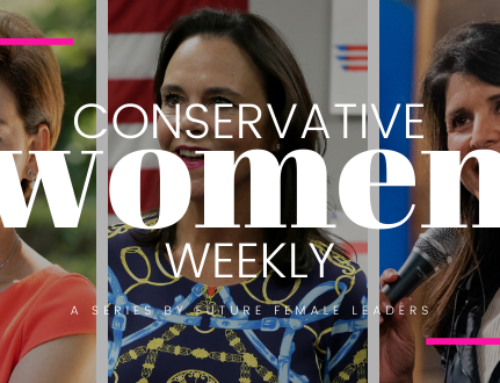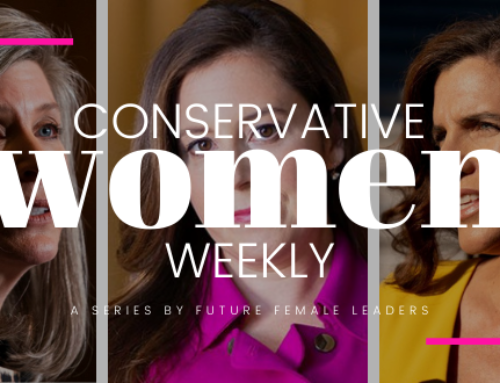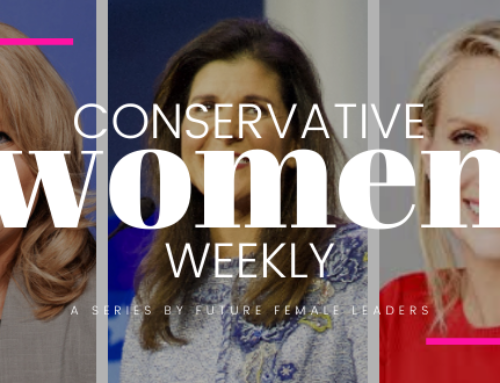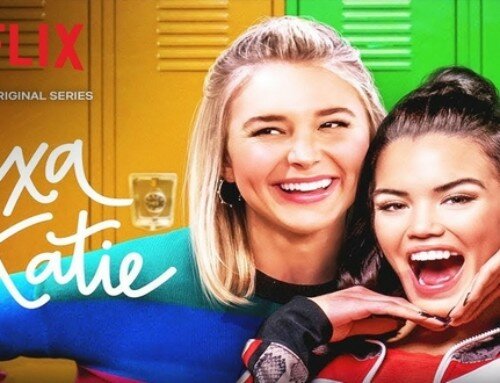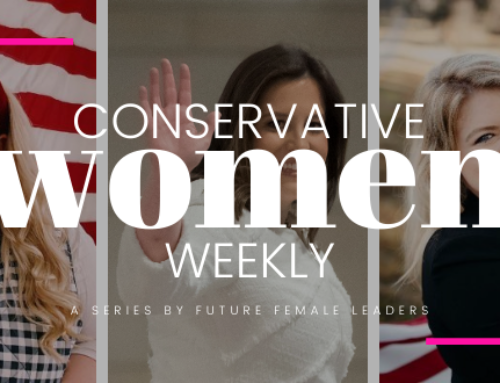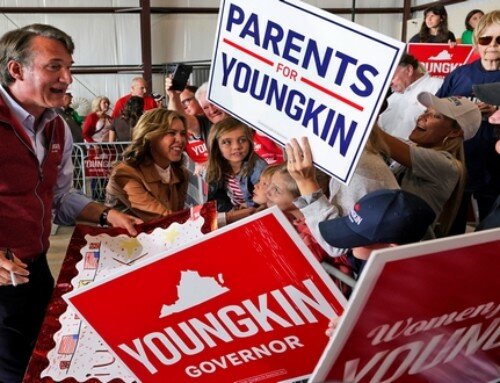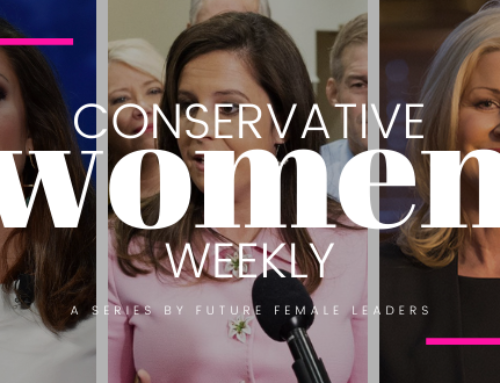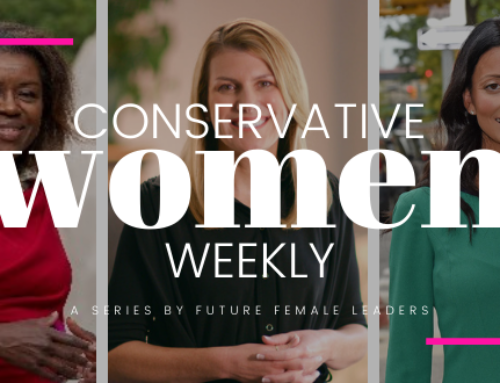We’ve shown a few of Teen Vogue’s most problematic articles in the past, and even quizzed you on “New York Times or Teen Vogue.” The teen magazine never ceases to amaze us with their far-left political views that cover the pages of this “fashion magazine.” Politics can be found on their site between the “style” and “culture” tabs. When did Teen Vogue go from teaching teens how to style their skinny jeans and text their crush to how to get an abortion without parental consent? Here’s round 2 of Teen Vogue’s most problematic articles with the most problematic quote from each one, and a few questions for the authors.
#12: Karen is Being Used by White Women — Here’s Why They Need to Stop
“Part of the power behind the usage of “Karen” is because it has served as a term, in Black circles for years, to describe white women who have facilitated violence against Black people, either through daily microaggressions or potentially dangerous calls to law enforcement. Gen-Z popularized Karen on TikTok, where the hashtag #Karen has over 2.7 billion views. Incisive onscreen portrayals of Karen-esque women, including Reese Witherspoon’s suburban mom character in Little Fires Everywhere and Cate Blanchett’s depiction of anti-feminist Phyllis Schlafly in Mrs. America, have reframed well-meaning white women as the villains, rather than victims, in stories.
Questions: Do women named Karen have to change their name to not be “racist”? Why can only a specific race use the term? Doesn’t the meme lose the purpose if not everyone can use it? What’s the male equivalent?
#11: Americans Don’t Have to Work Themselves to Death
“If the capitalist class had their way back in 1938, we’d all still be working 14-hour days; now, we usually only work closer to nine.”
“We may not abolish work itself anytime soon, but it’s definitely time to tear down our oppressive workplace structures, kill the capitalists in our heads, and build something healthier and more equitable for everyone, no matter their age or ability. The FLSA was a good start, but as the past century — and past few months — have shown, we’ve still got a helluva lot of work to do.”
Questions: I have so many questions about this. If we abolish work, how are we going to live? How does one “abolish work”? Do they think socialism means no one working?
#10: Ronald Reagan Sucked, Actually
“It’s difficult to boil an entire administration’s worth of economic policy down to a few words, but for a working definition of Reaganomics, let’s look at a few key features of Reagan’s policies: cutting taxes (especially for the rich) for trickle-down economics, cutting social welfare spending, increasing military spending, and deregulating economic activity in the name of “free” markets. Reagan’s path to American greatness meant making rich people pay less in taxes, giving poor people less help, building the imperial forces he used in foreign policy, and making life easier for the capitalist class.”
Questions: What does higher taxes accomplish? Does the writer want to have all of her money taken to fund government programs? What’s the reasoning for rewarding people for choosing to be jobless? Should we require Bernie to single-handedly pay for liberals to live, since they want to ‘eat the rich’? Do Teen Vogue readers even pay taxes?
#9: Who Is Karl Marx: Meet the Anti-Capitalist Scholar
“Some examples of violence that aided in the establishment of capitalism in the United States include stealing the land of Indigenous people and trafficking Africans through slavery.”
Questions: And are you aware of the violence that has happened under communism and/or socialism? Firing squads, anyone? The killing of women, LGBT+, and more. Not to mention, the starvation that occurs under communist and socialist regimes.
#8: The U.S. Doesn’t Deserve To Make Juneteenth A National Holiday
“America is an anti-Black, white supremacist country”
“The reality is that our world is not getting any better anytime soon (thanks to capitalism-induced climate change). This moment we’re in right now is so rare and so important that we cannot let it result merely in incremental changes, or just put our hopes in electoral politics that do nothing to guarantee systemic transformation. No matter how much those who shame and condemn rioters would like to avoid it, the spectacle of rioting catapulted police abolition into our national discourse. I’m convinced it is because people in Minneapolis burned police buildings and looted stores that the unrest spread worldwide and has caused a global shift in the way that we look at policing. This can’t be emphasized enough.”
Questions: What does capitalism have to do with climate change, and what does climate change have to do with Juneteenth? Why can’t we celebrate equality with our black brothers and sisters? Do they know ‘supremace’ isn’t a word?
#7: How the Electoral College is Tied to Slavery and Three-Fifths Compromise
White supremacy is systemic. It lives in policies like law-and-order policing and access to public goods and services. It thrives in politics with systems that Americans rely on to elect leaders, like the elec, a process originally designed to protect the influence of white slave owners, which is still used today to determine presidential elections.
Questions: If slavery no longer exists, why is the electoral college still “racist”? Slaves were only counted as ⅗ of a person at the time it was established, but now all citizens are counted as a whole person.Why is it problematic today?
RELATED: QUIZ: Who Published These Headlines? New York Times or Teen Vogue?
#6: The Racist History of America’s Patriotic Anthems
“Patriotism is defined as “love for or devotion to one’s country.” As black people, we’re expected to shut up and sing these songs that, for so long, declared and celebrated freedom that specifically excluded us; freedom that, in 2019, still doesn’t feel applicable to us. “
“Once we know better, we have a responsibility to do better. If we don’t, we’re complicit in the continuation of racist traditions and behaviors that have been upheld in America since the first colonizers arrived.”
Questions: Can anyone be patriotic anymore without being slandered with a racist label? Is anyone that chooses to stand, sing, or salute during a patriotic anthem a racist?
#5: Women Have Always Been a Part of White Supremacy
“Immediately following the election of Donald Trump, commentators and pundits alike were stunned, asking, “Who are these 53% of white women who voted for Trump?” Shocked that these women would support a man who had been recorded saying it was totally permissible to ‘grab ‘em by the p*ssy” some believed — at least in this case — gender solidarity should outweigh racial ties.
But why are we still (seriously) asking that question now? Is it because we simply cannot fathom that many white women have a vested interest in white supremacy because it benefits them, too? Can we not envision a world where white women benefit from white privilege and power — whether they intend to or not? Are we so committed to our own logic and beliefs that we cannot believe the actual historical facts of the matter?
Current events may be relatively silent on the role of women in white supremacy, but history is quite loud. White women are number two in a deeply entrenched racial order in the United States. And when we talk about whiteness being threatened or violent public protests to preserve that order, we are always talking about women, too.”
Questions: Are white women not allowed to think for themselves and elect a president who they see as fit for the job? Are we not privileged now if we voted for Trump? What are white women allowed to do? Please, Teen Vogue, let me know.
#4: It’s Time to End White Politics
“Zerlina Maxwell: Donald Trump exploited white identity politics to excite a certain section of the American electorate that was feeling white racial resentment and anxiety around the changing demographics in the country and immigration. I think that we’ve never called out the fact that white identity politics is kind of what we do in America. We’ve always been doing identity politics, we just called it politics. And we obscure the fact that when we’re talking about flyover states, or we’re talking about suburban women, or we’re talking about working-class voters, we are talking about white people, and we need to say so. Also, we’ve been centering those folks and their concerns at the expense of everyone else in every conversation, and every single poll, and every single message that goes out from the quote-unquote Democratic establishment.”
Questions: Do white people have to simply cease to exist? Shouldn’t political officials be chosen based on qualification, not race?
#3: Queer Liberation Means Abolish the Police
“There is no place for the police in that future. Just as cops are not welcome at Pride because of their history targeting us, they are not welcome in a liberated queer future because their primary function is to maintain a status quo that victimizes LGBTQ people. Our history as queers in this country is one of criminalization through anti-sodomy and anti-crossdressing laws, one of being forced into the margins of society. We were shunted into places like mafia-run bars where police could regularly bust up the joint — the exact situation that sparked the Stonewall riots.”
Questions: Does being LGBTQ+ give someone permission to vandalize a NYPD vehicle? If police are abolished, who is coming to emergency calls from anyone, even in the LGBTQ+ community? Seriously, what good would “defunding the police do?”
#2: Why Sex Work Is Real Work
“Still, continued criminalization of sex work and sex workers is a form of violence by governments and contributes to the high level of stigma and discrimination.”
Questions: Why are we promoting prostitution to minors? Also, not agreeing with something doesn’t automatically make something “violence.” Pass it on.
RELATED: A Deep Dive Into Teen Vogue’s Most Problematic Articles
#1: How To Get An Abortion As A Teen
“Having access to abortion should be your right, regardless of your parents’ beliefs.
Unfortunately, not every state legislature agrees with me. Roe v. Wade deemed access to safe and legal abortion a constitutional right in 1973, but just six years later, the Supreme Court ruled in Bellotti v. Baird that states could insist that a minor obtain parental consent.”
Questions: Why are we talking about abortion to young women and why are we advocating to get medical attention and/or make medical choices without a parent’s consent if they’re still a minor.
And most of all, why are these articles found in a teen fashion magazine? There’s no reason to include political agenda-pushing articles in a teen magazine. Teen Vogue was once full of fashion and boyfriend advice. Now it’s the “woke” epicenter for young women. Why are political views pushed by fashion magazines and companies throughout the U.S.?
Whitney E
CABINET
Whitney is a senior majoring in communication at Mississippi State University. When she's not preparing for law school, you can find her online shopping or planning a trip to Disney World. She loves Ronald Reagan, traveling, and all things preppy.


